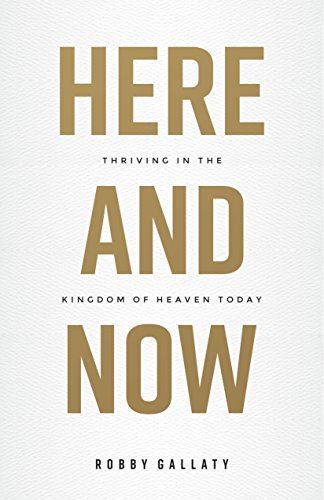The Whole Story: Why the Old Testament Is Critical to the Gospel We Share

Have you ever walked in on someone midway through telling a story? Certain details that are pertinent to understanding the point of the story are missed.
Paul Harvey made a career telling “the rest of the story” to his radio listeners. In 1976, Harvey provided hearers with forgotten insights or little-known facts on a variety of topics with one key element, usually the name of an individual, kept to the end of the broadcast.
He always concluded with the words, “And now you know the rest of the story.”
Most Christians read the Bible in a similar way, spending time in the New Testament at the expense of the Old Testament.
By only reading a quarter of the book, we miss the “rest of the story.” We can’t truly appreciate the New Testament without an understanding of the Old Testament.
Our preoccupation with part of the Bible—and our neglect of the other part—is brought to light in our gospel presentations. The history of the nation of Israel is all but removed from our evangelistic conversations.
By doing this, we eliminate three-fourths of our modern Bibles.
I have been guilty in years past of this oversight as well.
At one time, my gospel presentations started with creation in Genesis 1, moved to the fall in Genesis 3, and made a beeline to the New Testament with the birth of Christ.
But what about:
- the punishment for sins running rampant among mankind in Noah’s day in Genesis 7
- the expulsion of the nations for building a tower in Babylon to be like God
- the call of and covenant with Abraham to make him the father of the nation of Israel (this is God’s response to Adam’s sin)
- the messiah-like figure Moses whom God used to liberate the people from the bondage of Egypt
- the giving of the law and festivals as a foreshadowing of the Messiah (what Moses was incapable of doing by bringing the people into the promised land, the Messiah will do)
- Joshua’s campaign to claim the promised land
- the building of the Temple as a reminder of God’s promise to dwell among His people
- the Babylonian captivity as judgment for the rebellion of the nations
- the prophets who warned and encouraged the people to turn back to God
- the silence after Malachi for four hundred years setting the stage for John the Baptist crying in the wilderness as the Elijah-like figure promised from the days of old?
If none of this is pertinent for salvation, why devote three-fourths of the Bible to recording its history?
I’m not suggesting that every gospel presentation must walk the hearer through the entire meta-narrative of Scripture, for many times we only have a short time to explain the gospel.
However, we should understand how God brought His people out of captivity so He could be with them.
Biblical scholars B. T. Arnold and B. E. Beyer wrote, “The purpose for the exodus from Egypt was so God could dwell in the midst of His people. The coming of God’s glorious presence into the newly constructed tabernacle forms the climax of the book of Exodus (40:34).” (B. T. Arnold and B. E. Beyer, Encountering the Old Testament: A Christian Survey, Grand Rapids, MI: Baker, 1999, 114).
By glossing over the Old Testament, we miss the picture of how God redeems in order to rule and reign over His people.
When we explore a biblical concept, it is standard practice to examine the first instance of the concept you are studying. Where are biblical readers first introduced to God reigning as a king? You may think of the dynasty of King David or his son Solomon. Others may call to mind the rebuilding of the Temple in Nehemiah’s day. Neither of these answers are correct.
The kingdom of God is not a locale we enter into, but rather God working among His people. In reality, the first mention of God’s kingdom in the Bible is in the context of the exodus from Egypt. The people have just been set free from captivity through God’s miraculous works.
God directed Moses to approach Pharaoh with a request to let His people go. Over the course of ten plagues, God displays His power over the gods and goddesses of Egypt:
The plague of blood defeated Khnum, the River god of the Nile.
The plague of frogs defeated Heket, the frog goddess of Egypt.
The plague of lice defeated Aker, the earth god of Egypt.
The plague of flies defeated Khepri, the fly god of Egypt.
The plague on the cattle defeated Hathor/Ptah, the Egyptian goddesses associated with bulls and cows.
The plague of boils defeated Imhotep, the healing god of Egypt.
The plague of hail defeated Nut, the Egyptian sky god.
The plague of locusts defeated Renenutet, the field god of the harvest.
The plague of darkness defeated Ra, the Egyptian sun god.
The tenth plague was the most devastating attack of the previous ones, for it went after Pharaoh himself by killing his firstborn son. It was also a foreshadowing of the death of God’s firstborn son centuries later (Ten Plagues for Ten Egyptian Gods and Goddesses, https:// www.stat.rice.edu/~dobelman/Dinotech/10_Eqyptian_gods_10_ Plagues.pdf).
God, Himself, was showing He reigns supreme over any false god who would try to usurp Him.
Appearance of the Kingdom
While Genesis alludes to the kingdom concept, Exodus explicitly screams, “The God of Israel is superior to the gods of Egypt.” When God liberated the people from the bondage of Egypt and delivered them through the waters of the Red Sea, Moses sang a praise song to God in Exodus 15 for obliterating “Pharaoh’s chariots and his army into the sea; the elite of his officers were drowned in the Red Sea…The floods covered them; they sank to the depths like a stone…Lord, your right hand shattered the enemy…You stretched out your right hand, and the earth swallowed them” (Exod. 15:4–6, Exodus 15:12).
This song of victory concludes with the establishment of God’s Temple in connection to His kingdom reigning forever. Moses pens the first words about the “kingdom of God” in the Bible.
“You will bring them in and plant them on the mountain of your possession; Lord, you have prepared the place for your dwelling; Lord, your hands have established the sanctuary. The Lord will reign forever and ever!” (Exod. 15:17–18). Reigning forever pronounces God’s kingship over His people. No longer will the people serve the Pharaoh of Egypt. God’s chosen people are free now to worship and serve Him.
“Will reign” is an imperfect verb in Hebrew, signifying that the future is up in the air; it’s dependent upon some present action. An example of this in English would be, “An apple a day keeps the doctor away.” The future isn’t actual yet, it is dependent on a present action. The doctor being kept away is dependent on whether you eat an apple a day.
Moses is saying that they have observed God’s miraculous act of salvation. They have observed first-hand God’s glory as King, and His worth is not found in palaces, chariots, gold, or silver. His inheritance is the nation He saved.
Because of what they observed, they can say with certainty, “God is reigning today and will reign forever.”
Their response for God’s gracious act of salvation would be obedience to His Word, which is why the next stop before the Promised Land was a mountain. Was their freedom from the bondage of Egypt the result of their own good works? Did God rescue the nation because they earned it? Did their redemption come about because they would pay God back one day?
No. God set them free as a demonstration of His unearned and unmerited favor.
The law was not the prerequisite for redemption; it was given as a gift after they were emancipated from Pharaoh’s rule. God established His kingdom by proving His majesty and by delivering His people from slavery. And His subjects demonstrate their loyalty by obeying His decrees. It is a joyful adherence to the commands of God in response to what He has already done for them.
Scripture records the whole history of God’s people from their birth in Exodus 15 to their future renewal in Revelation 15. In between is language of the kingdom, a kingdom not coming, but one that is already, to some extent, here.
Notice how believers in Revelation sing the same song of Moses: “They sang the song of God’s servant Moses and the song of the Lamb: Great and awe-inspiring are your works, Lord God, the Almighty; just and true are your ways, King of the nations’ Lord, who will not fear and glorify your name? For you alone are holy. All the nations will come and worship before you because your righteous acts have been revealed” (Rev. 15:3–4).
In one sense, the culmination mirrors the commencement.
The good news for all followers of Jesus is that there is no need to wait to enter the kingdom.
Jesus instructed His followers two-thousand years ago, “Seek [today] first the kingdom” (Matt 6:33). The end times consummation has broken into the present time. The entire Old Testament message can be summed up in the phrase: “Our God reigns forever and ever.”

Robby Gallaty is the Senior Pastor of Long Hollow Baptist Church in Hendersonville, TN. He was radically saved out of a life of drug addiction on November 12, 2002. In 2008, he began Replicate Ministries to equip and train men and women to be disciples who make disciples. He is also the author of numerous books. He and his wife Kandi have two boys.
Photo Credit: ©Thinkstock/Wenping-Zheng
Originally published March 15, 2019.




